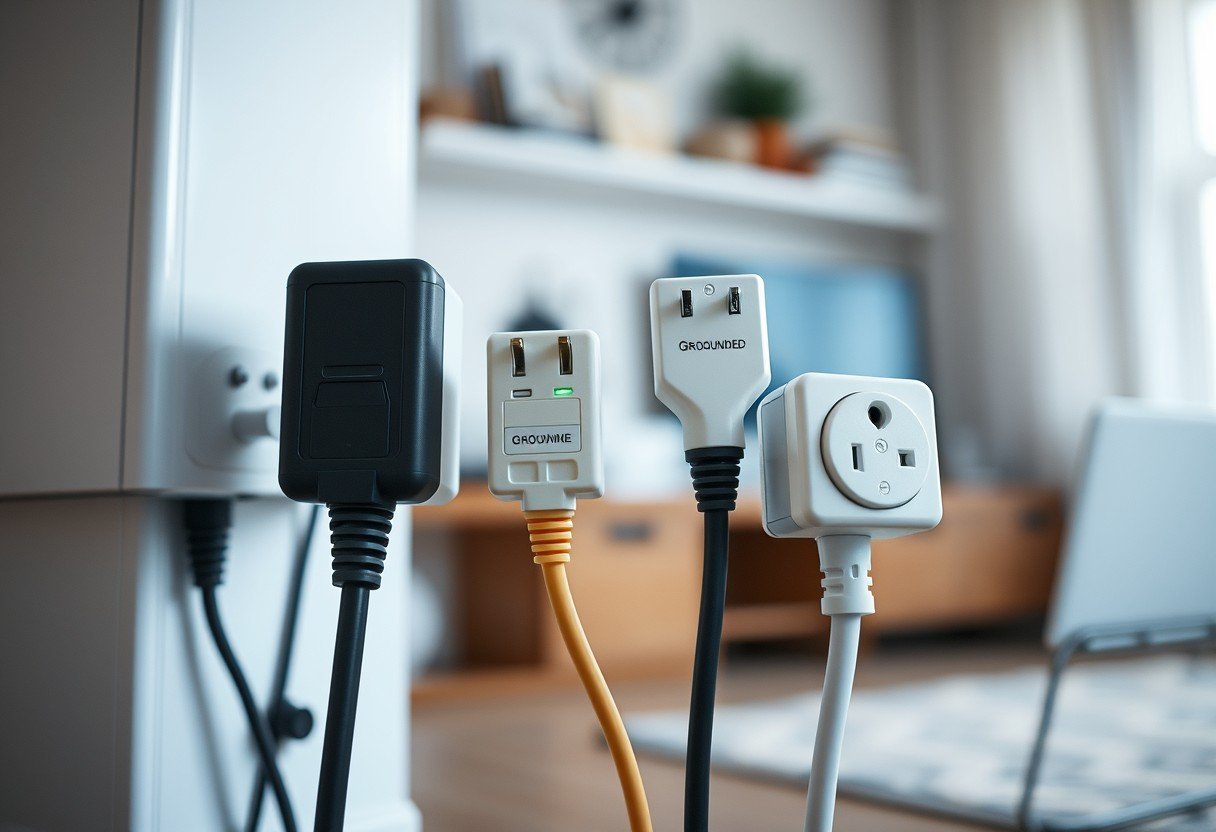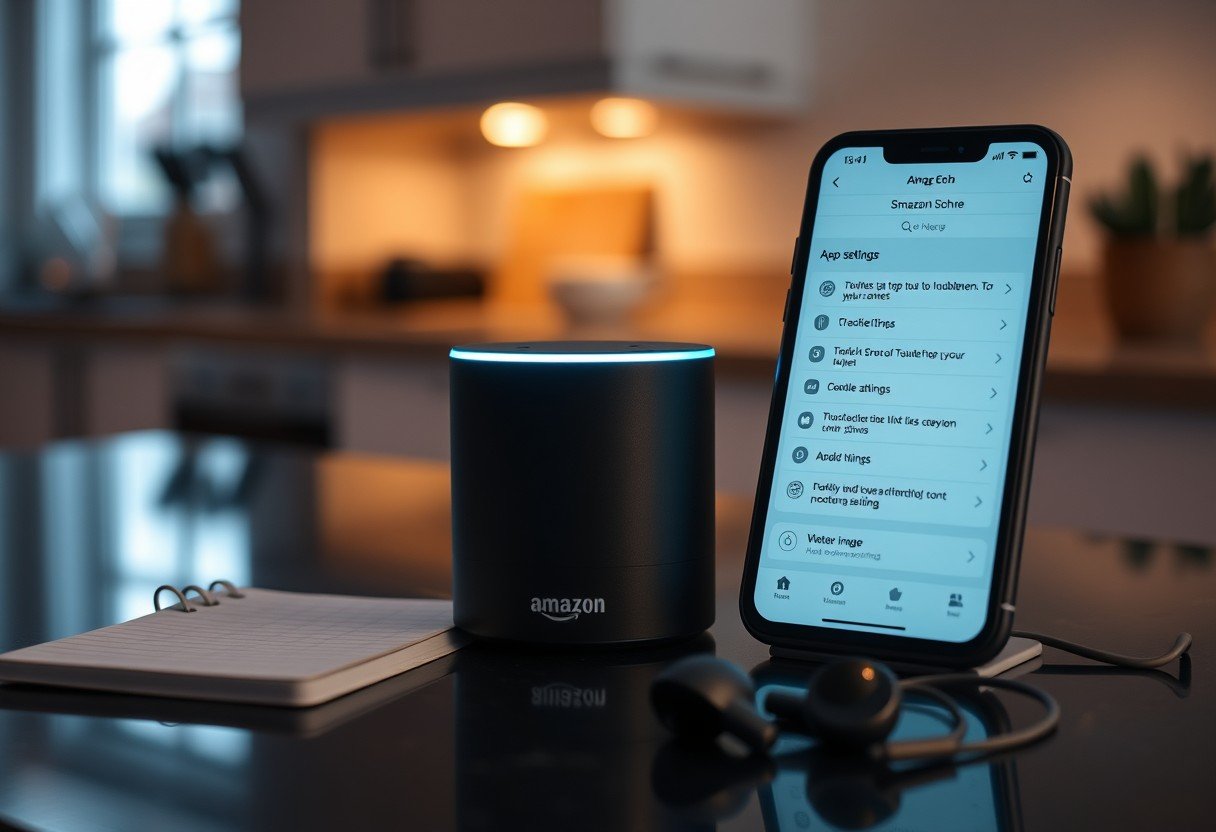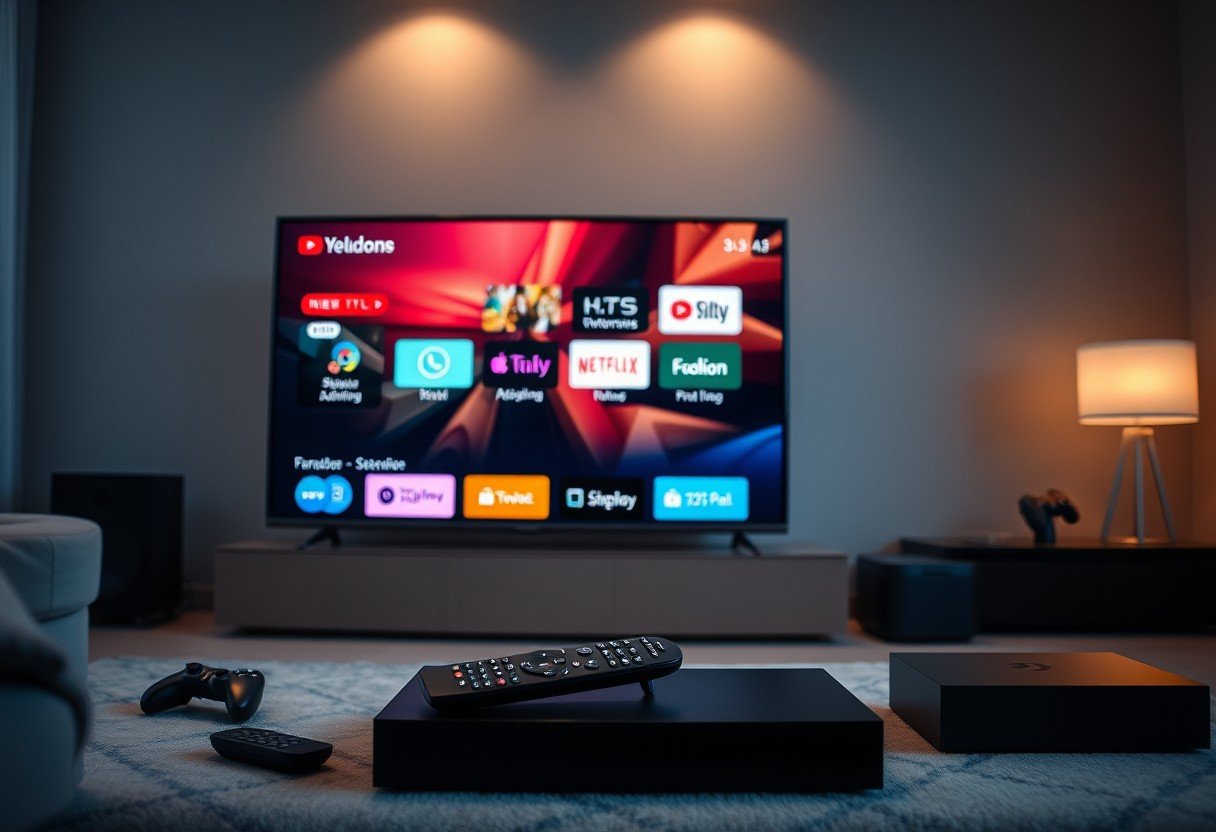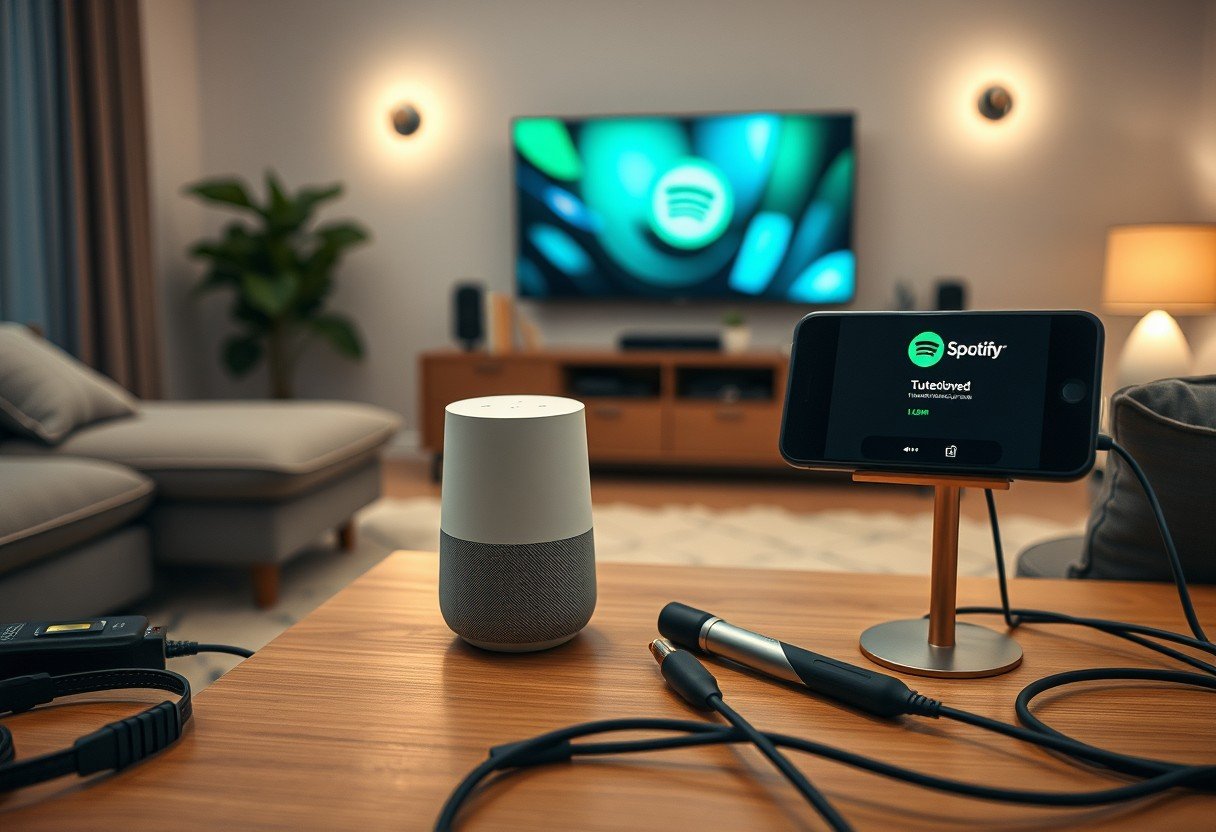When you plug in an appliance, you expect it to work safely. But what about the extension cord you’re using? Not all extension cords are grounded, and using the wrong one can be dangerous. A grounded cord has a third prong that acts as a crucial safety feature, protecting you from electrical shock and preventing fires. Understanding whether your cord is grounded and when you need one is essential for keeping your home and your devices safe.
What Grounding Actually Means for an Extension Cord
Grounding is a fundamental safety feature in electrical systems. Think of it as an emergency exit for electricity. In a properly functioning circuit, electricity flows from the “hot” wire, through your device, and back through the “neutral” wire.
However, if there’s a fault, like a loose wire touching a metal part of an appliance, the electricity needs a safe place to go. A grounded extension cord provides this path. The third prong connects to the grounding wire, which directs this dangerous stray electricity safely into the earth.
Without a ground path, you could become the path of least resistance, leading to a severe electrical shock. This simple feature stabilizes voltage and protects both you and your expensive electronics from unexpected electrical surges and faults.
How to Tell if Your Extension Cord is Grounded in 3 Seconds
You don’t need to be an electrician to identify a grounded extension cord. The easiest way is to look at the plug.
A grounded extension cord will always have a plug with three prongs. Two of the prongs are the flat blades for the hot and neutral connections, while the third is a round or U-shaped pin. This third pin is the ground connection. If your extension cord only has a two-prong plug, it is ungrounded.
While you’re looking, you might notice that one of the flat blades is wider than the other. This is called a polarized plug, which is another safety feature, but it is not the same as grounding. Always look for the distinct third prong to confirm that your cord is grounded.
Grounded vs. Ungrounded Cords: A Quick Comparison
Choosing the right cord is critical for safety and performance. While ungrounded cords have their place, grounded cords offer a superior level of protection that is necessary for many common devices. This table breaks down the key differences to help you decide.
| Feature | Grounded Extension Cord | Ungrounded Extension Cord |
|---|---|---|
| Plug Design | Three prongs | Two prongs |
| Best For | Power tools, major appliances, computers, outdoor equipment | Small, double-insulated appliances like lamps and phone chargers |
| Safety Level | High (protects against shock and surges) | Low (offers no protection from electrical faults) |
| Primary Function | Provides power and a safe path for fault current | Provides power only |
The Dangers of Using the Wrong Extension Cord
Using an ungrounded extension cord with an appliance that requires grounding is a serious gamble. According to the U.S. Consumer Product Safety Commission, extension cords are responsible for thousands of injuries and fires each year, many of which are preventable.
The most immediate risk is electrical shock. If a short circuit occurs inside a metal-cased tool, the entire casing can become energized. A grounded cord would instantly trip the circuit breaker, but an ungrounded cord leaves that electricity looking for an escape path—which could be you.
Beyond personal injury, ungrounded cords also leave your electronics vulnerable. They offer no protection against power surges, which can instantly destroy sensitive components in computers, televisions, and other high-value equipment. The cost of replacing a fried motherboard is far greater than the cost of a proper extension cord.
When a Grounded Extension Cord is Absolutely Necessary
While a two-prong cord is fine for a simple lamp, certain situations demand the protection of a grounded cord. Using the wrong cord in these scenarios isn’t just a bad idea; it’s a significant safety hazard.
Always use a grounded extension cord for:
- Power Tools: Drills, saws, sanders, and other tools, especially those with metal housings, require grounding to protect the user from shock.
- Major Appliances: Devices like refrigerators, microwaves, washing machines, and air conditioners draw a lot of power and must be grounded.
- Outdoor Work: When working outdoors or in damp locations like a basement or garage, the risk of electrical shock is higher, making grounding essential.
- Sensitive Electronics: Computers, home theater systems, and other valuable electronics should be plugged into grounded cords (ideally connected to a surge protector) to shield them from voltage spikes.
Always Check for the UL Certification Mark
To ensure an extension cord is safe, look for a certification mark from an independent testing laboratory. The most common one in North America is the UL mark from Underwriters Laboratories.
A UL certification means the cord has been rigorously tested to meet strict safety and performance standards. This includes testing its wiring, insulation, strain relief, and capacity to handle its rated electrical load without overheating. Choosing a UL-listed cord gives you confidence that it is built correctly and won’t be a fire hazard. Avoid cheap, uncertified cords, as they often cut corners and can be extremely dangerous.
Frequently Asked Questions about Extension Cord Grounding
How can I tell if my extension cord is grounded?
Look at the plug. A grounded cord has a three-prong plug, with the third round or U-shaped pin being the ground connection. If it only has two prongs, it is ungrounded.
Are all heavy-duty extension cords grounded?
While most heavy-duty cords designed for high-power tools and outdoor use are grounded, it is not a guarantee. Always verify by checking for the three-prong plug before purchasing or using one.
What are the risks of using an ungrounded extension cord?
Using an ungrounded cord with an appliance that needs grounding increases the risk of electrical shock, as there is no safe path for fault currents. It also exposes your electronics to potential damage from power surges.
When should I use a grounded extension cord?
You must use a grounded extension cord for any appliance or tool that has a three-prong plug. This typically includes power tools, major appliances, computers, and anything used outdoors or in damp environments.
Can I just use a three-prong adapter on a two-prong outlet?
A three-to-two-prong adapter (cheater plug) is only safe if the outlet box itself is properly grounded via the center screw. In most older homes, this is not the case, making the adapter ineffective and creating a false sense of security. The safest solution is to have an electrician install a properly grounded outlet.









Leave a Comment